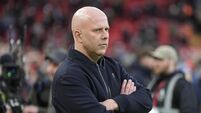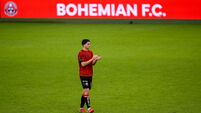Capello resignation rocks England
The Italian stepped down over the FA’s decision to strip John Terry of the captaincy, which was made last week after the court case where the centre-back is accused of racially abusing Anton Ferdinand was adjourned until July 9.
Capello went public with his unhappiness at the decision in an interview with Italian television on Sunday night — infuriating his superiors at Wembley.














